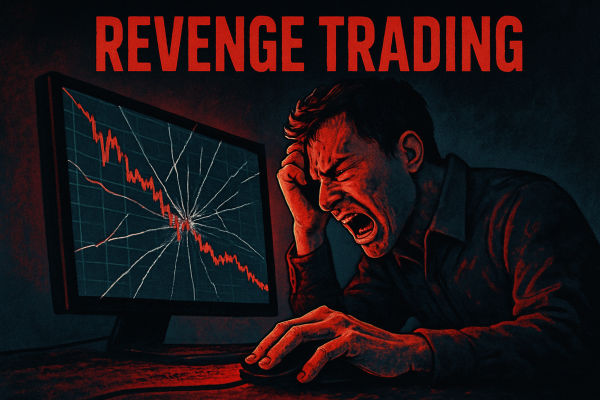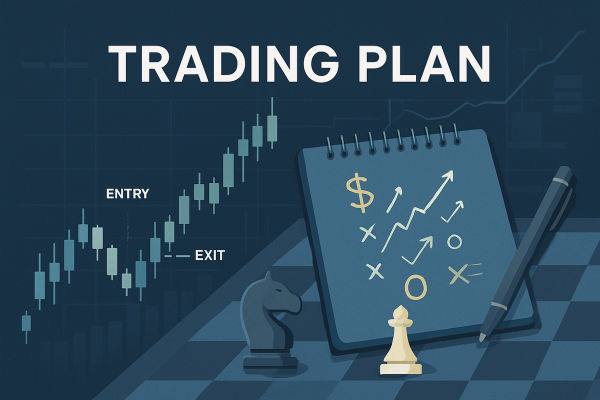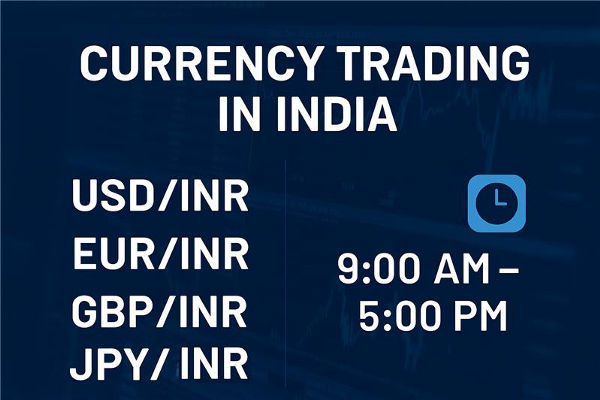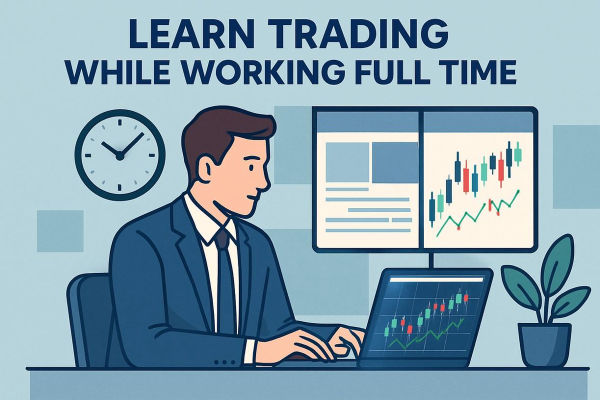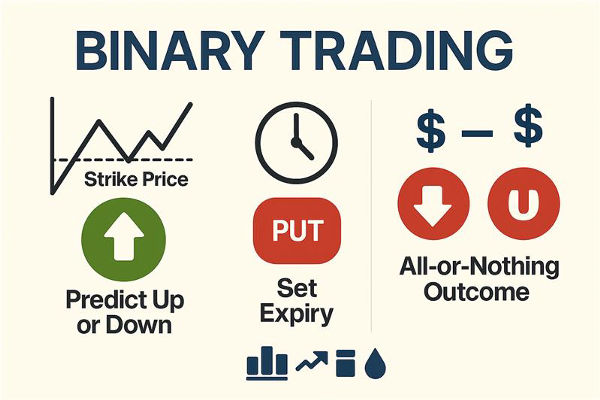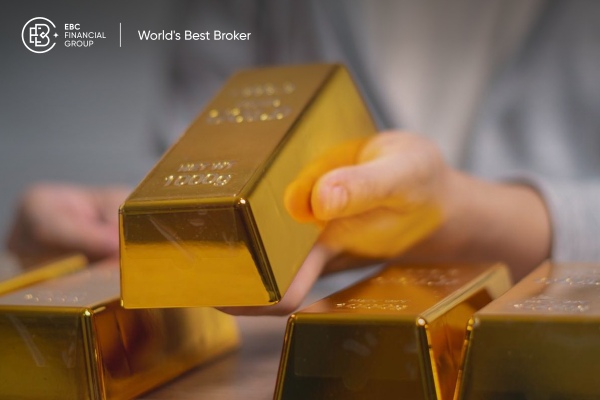Revenge trading, pursuing a trade impulsively to recover losses, is one of the most harmful behaviours a trader can fall into. Driven by frustration, anger, or ego, it often leads to compounding losses and emotional burnout.
Unfortunately, many traders don't realise they're doing it. This guide outlines ten hidden indicators that you engage in revenge trading, often unknowingly, and provides ways to escape the perilous pattern.
Why Revenge Trading Happens
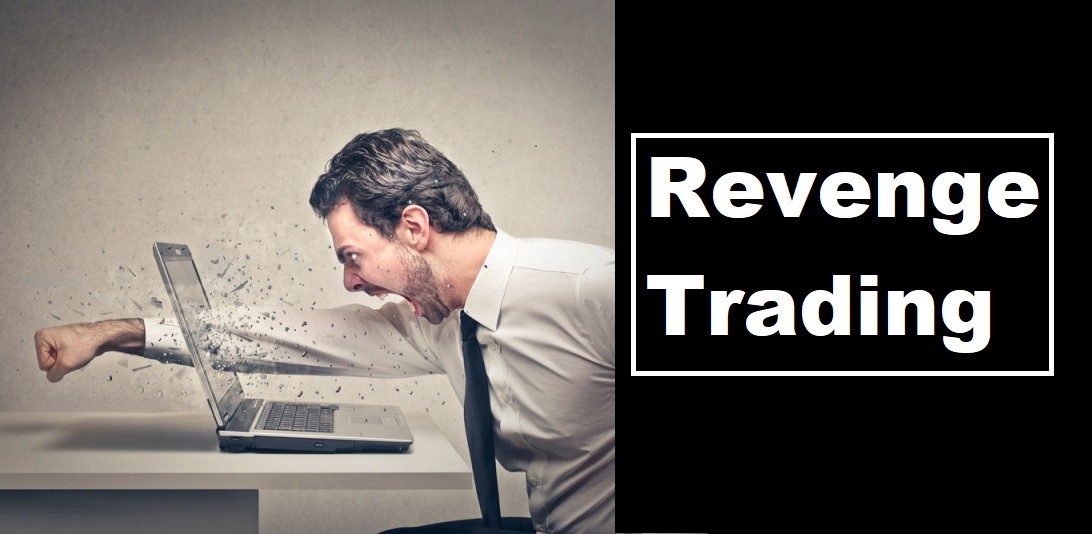
At the root of revenge trading are powerful psychological biases and emotions. Loss aversion, a principle of prospect theory, leads traders to experience pain from losses far more acutely than joy from gains.
This drives an emotional desire to make up losses quickly. Combine that with pride, ego, and stress, and trading becomes about winning emotionally, not strategically.
10 Signs You May Be Revenge Trading
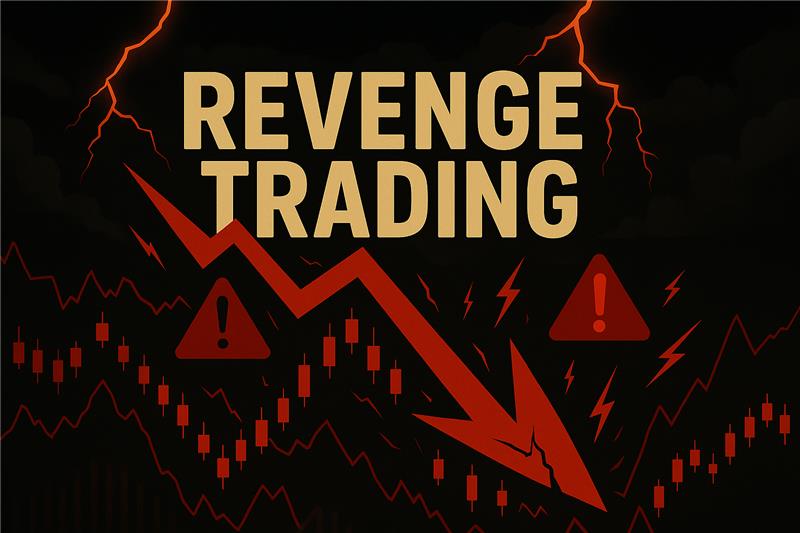
1. You Increase Position Size After a Loss
One of the clearest red flags is suddenly doubling or tripling your trade size after a losing trade. You tell yourself, "If I just hit this one trade, everything will be fine." But increasing risk like this often leads to deeper losses because it's driven by emotion, not strategy.
2. You Jump Into Another Trade Immediately
If you re-enter the market quickly after a loss, without evaluating the circumstances, your strategy, or your plan, you could be emotionally chasing losses.
Traders warn that entering too fast, especially after a loss, usually signals revenge trading. Real setups deserve research and time, not impulsive reaction.
3. You Ignore or Move Stop-Losses
Post-loss desperation often leads to moving stop-losses wider or ignoring them altogether, hoping the trade will turn around.
Disregarding your risk controls shows you are trading based on emotions rather than in a professional manner. This behaviour nearly guarantees larger and uncontrolled losses.
4. You Chase the Market After a Loss
Instead of waiting for defined setups based on your strategy, you jump after price moves, chasing a recovery. This tunnel vision of obsessing over a prior trade, market move, or a missed opportunity is a typical revenge psychology.
5. You Skip or Break Your Trading Rules
When frustrated, you often abandon your own criteria, such as entry setups, time-of-day filters, or risk thresholds and trade based on gut or intuition. Disregarding your Trading plan is a strong indicator that feelings, rather than reasoning, are influencing your choices.
6. Your Emotional State Is Dominated by Anger or Desperation
If you're feeling intense anger, frustration, or shame after a loss, and this emotional state compels you to keep trading, you are likely heading into revenge mode. When trading makes it personal, you've lost your edge.
7. You Trade More Frequently After Losing
A series of losses frequently leads to overtrading. For instance, several trades occur quickly one after another, even without legitimate signals. Spurs of "just one more trade" often result in poor entries, inadequate setup validation, and escalating risk.
8. You Enter Trades Without Valid Edge or Reason
Revenge trades often lack rationale. You enter because you feel you must, not because the setup meets your rules. You override evidence-based decision-making with emotion, turning the market into a personal battlefield.
9. You Break Your Loss Limits
Every trader should have a daily or session loss cap. If you ignore these and press on beyond a threshold you set, you're letting emotion override discipline, making conscious decisions to chase losses.
10. You Blame the Market or External Factors Instead of Your Own Decision
Emotional traders tend to blame the market, the broker, or the algorithm for their losses. They avoid owning mistakes and analyse external causes rather than internal mindset and process failures. That refusal to reflect is a classic sign of revenge-driven behaviour.
How to Stop Revenge Trading? 5 Recommended Tips
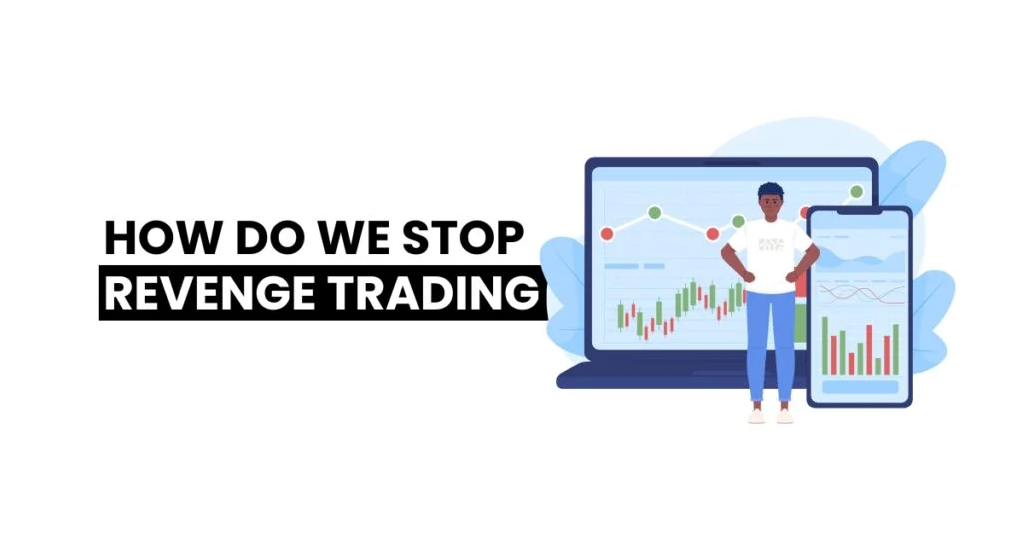
1) Pause and Breathe After a Loss
Immediately after a losing trade, pause and step away for 15 to 30 minutes. Take a break, journal your emotions, or review your setup. A cooldown period helps disengage emotional momentum and restore rational thinking.
2) Enforce Daily Loss and Trade Limits
Set strict thresholds: no more than X% loss per day, and no more than Y losing trades in a row. Once reached, stop trading altogether. This rule preserves capital and emotional integrity.
3) Journal Emotions Alongside Metrics
Record not just price, entry, and exit, but how you felt entering the trade, why, and whether you deviated from your rules. Over time, patterns emerge, helping you avoid emotional loops.
4) Revisit Your Strategy and Recalibrate
Review your trading plan. Make sure it provides clear setups, entry/exit criteria, and risk rules. If it's vague, emotion fills the gap. If it's rigid, you can rely on it when the market hurts.
5) Train Emotional Discipline Outside Trading
Practices like mindfulness, brief meditation, or jogging help manage stress and ego. Traders who manage their mindset away from the screen trade more rationally when they are on it.
Frequently Asked Questions
1. Why Is Revenge Trading So Dangerous?
Answer:
Revenge trading is dangerous because it fuels feelings rather than reason or assessment. It often leads to overtrading, poor risk management, and the abandonment of your trading plan, compounding losses instead of recovering them.
2. Can Revenge Trading Be Avoided?
Answer:
Yes. You can avoid revenge trading by setting daily loss limits, using a trading journal, taking breaks after losses, following a written trading plan, and managing your emotions through mindfulness or reviews.
3. Is Revenge Trading Common Among Beginners?
Answer:
Absolutely. Many beginners fall into revenge trading because they lack experience managing emotions after a loss. Learning to stay disciplined and emotionally neutral is a critical step toward becoming a successful trader.
Conclusion
In conclusion, revenge trading is covert, harmful, and highly damaging. It starts with emotion, escalates through multiple subtle behavioural shifts, and ends in poor performance, broken rules, and depleted capital.
However, by recognising the ten warning signs, like increased position size, ignoring stops, or trading immediately out of frustration, you can intervene early. That shift, from reaction to reflection, is what separates professional traders from emotional gamblers.
Disclaimer: This material is for general information purposes only and is not intended as (and should not be considered to be) financial, investment or other advice on which reliance should be placed. No opinion given in the material constitutes a recommendation by EBC or the author that any particular investment, security, transaction or investment strategy is suitable for any specific person.
